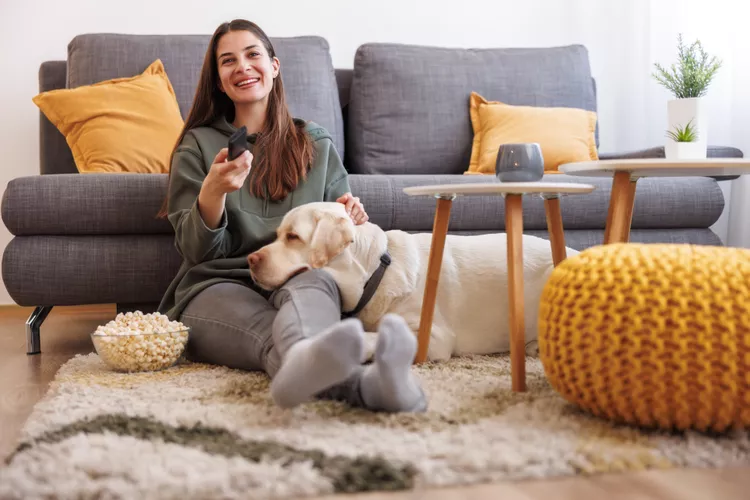
Can dogs eat popcorn? Yes, they can have a few bites, but there are some kernels of information you need to know before sharing your movie-time snack with your pup. Here's exactly how to safely share popcorn with your dog.
Plain, air-popped popcorn is usually safe for dogs when fed in small amounts as a treat. This means you can give your dog a couple of pieces as a special snack during movie night—as long as you’re okay with the begging that’s sure to ensue afterward. Keep in mind that treats should not make up over 10% of your dog’s daily calories. At least 90% of their calories should come from a complete and balanced canine diet.
Although your dog is unlikely to experience significant side effects if they eat a dropped piece of buttered popcorn or popcorn with toppings, dogs shouldn’t eat these types of popcorn regularly. Buttery popcorn can lead to stomach upset or even pancreatitis, and the high fat content can contribute to obesity. Other toppings like salt and sugar can cause vomiting, diarrhea, and dehydration. Some popcorn toppings like garlic are quite toxic to dogs.
All forms of popcorn pose a choking risk to dogs, but you should especially be cautious with unpopped or partially popped kernels. These are easily inhaled and can cause choking. Kernels can also get stuck between your dog's teeth, causing discomfort.
Popcorn may not be a good snack for dogs with dietary restrictions, such as dogs with diabetes or food allergies. Keep in mind that some dogs with food allergies may be allergic to corn. For these dogs, eating popcorn could cause skin issues, diarrhea, and gas.
If you plan to treat your dog to some popcorn, keep the following potential risks in mind:
Signs that your pup isn't tolerating popcorn include:
After feeding your pet popcorn, make sure to monitor your dog for any adverse reactions or digestive issues. Contact your veterinarian with any concerns. If you are concerned that your dog may be choking, seek emergency attention.
You're unlikely to see any side effects if your dog consumes a few pieces of plain, buttery, sugary, or cheesy popcorn. However, if your dog eats large quantities of plain popcorn, monitor for vomiting, diarrhea, excessive gas, and lethargy. If they get into large quantities of buttery, cheesy, or sugary popcorn, you should contact your veterinarian for guidance. You should also contact your veterinarian if your pet consumes popcorn while having dietary restrictions due to conditions like diabetes.
If your pet eats any popcorn with toxic substances, such as garlic or onion powder, contact a veterinarian or pet poison helpline immediately. Consultation fees may apply.
If you're at all concerned or your pet is showing unusual symptoms after eating popcorn, contact a veterinarian.
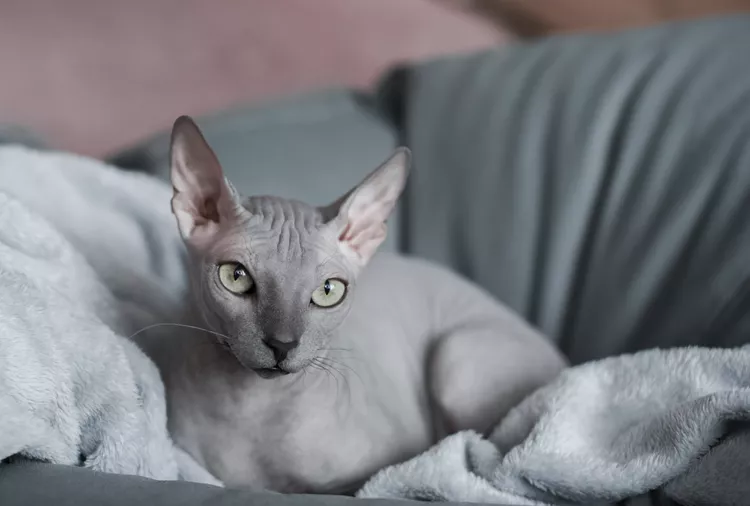
212 Hairless Cat Names For Your Beautifully Bald Feline
Discover the perfect name for your hairless cat with our list of over 200 creative and unique names. From quirky to classic, find a fitting choice for your beautifully bald feline companion.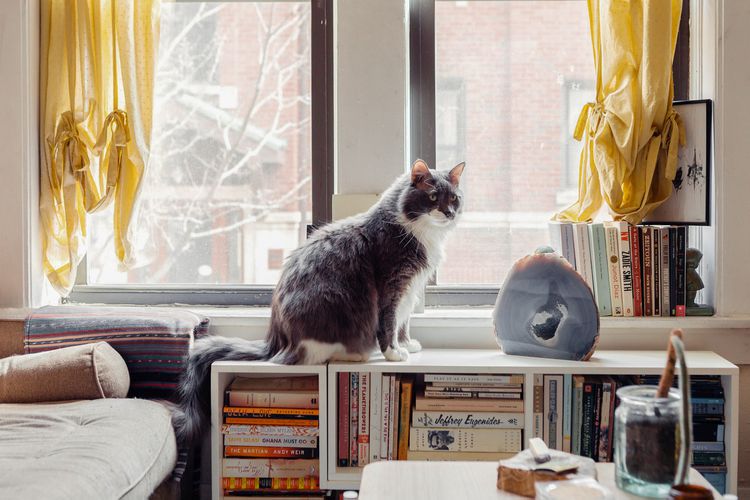
8 Things Your Cat Loves
Just like humans, cats can have a long list of things they like. Find out what cats love so you can keep your cat happy and healthy.
How to Tell If a Kitten is a Boy or a Girl
If you're wondering whether your new kitten is a boy or a girl, here are three ways to help determine the sex of your cat.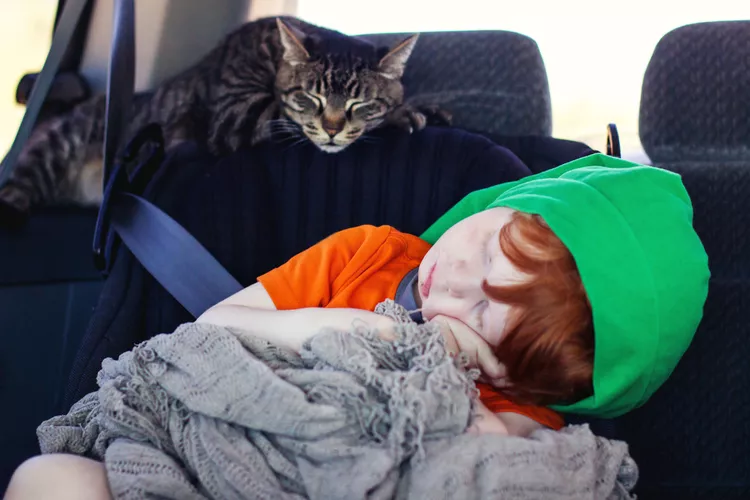
8 Tips to Help Cats Enjoy Car Travel
Cats are creatures of habit, and they hate to travel. Learn tips to prepare them for travel in the car, whether going to the vet or on vacation.
Common Causes of Mucus in Dog Poop
Seeing mucus in your dog's poop can be concerning to a dog owner. Here are common causes and treatment of mucus in a dog's stool.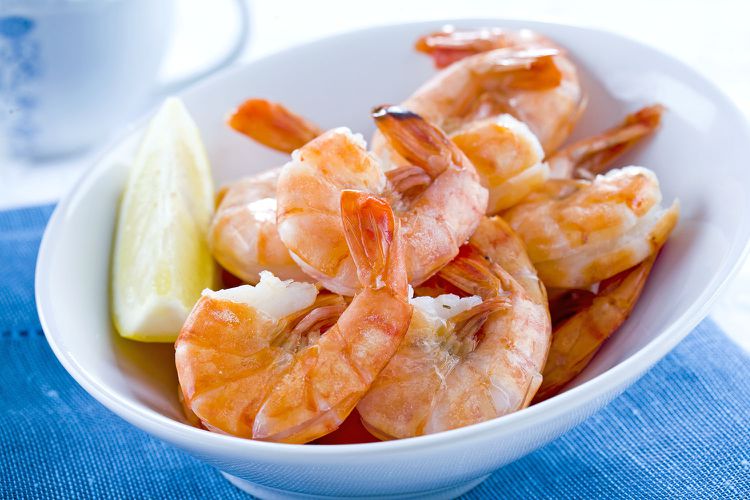
Is Shrimp Bad For Dogs?
Shrimp can be a healthy, nutritional food for people but can dogs eat them, too? What are the main concerns with feeding shrimp to your dog?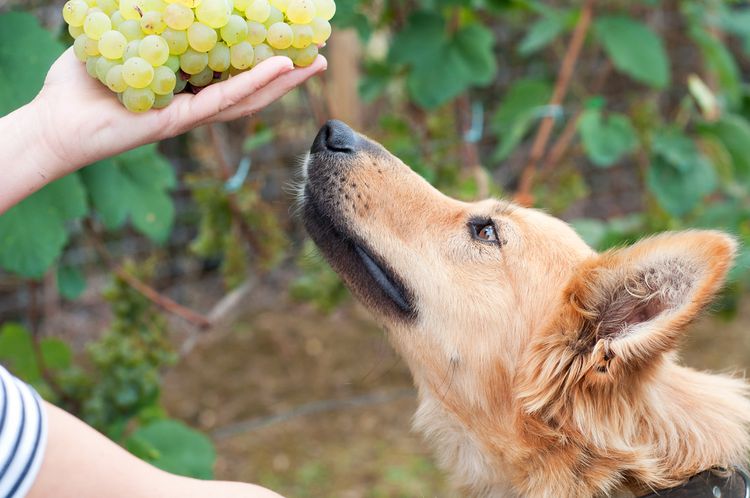
Can Dogs Eat Grapes?
Are grapes safe for dogs? Grapes and raisins can cause serious toxicity in dogs. Find out what to do if your dog eats grapes.
Maine Coon Cat: Breed Profile, Characteristics & Care
The Maine Coon cat is of the largest cat breeds in the world. These amiable, gentle cats make great companions. Learn about the Maine Coon cat breed's appearance, temperament, health, and care needs.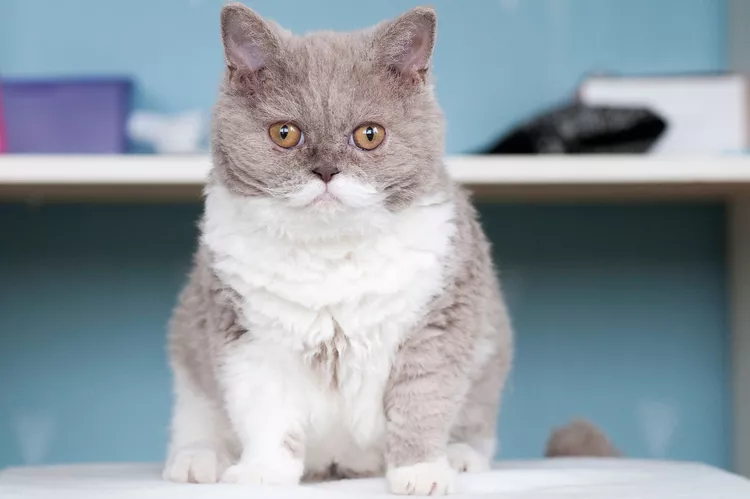
Selkirk Rex: Cat Breed Profile, Characteristics & Care
The Selkirk Rex is a charming cat with a tousled coat and a loving, laid-back personality. Learn about the Selkirk Rex breed.
How to Stop Your Cat From Chewing Electrical Cords
Cats are known to pounce and attack inanimate objects, like electrical cords. Learn how to prevent your cat from ambushing objects that may harm it.
What Do Cats Think About?
Have you ever wondered what cats think about? A number of studies have explored cat behavior and feline cognition, but there's still more to learn.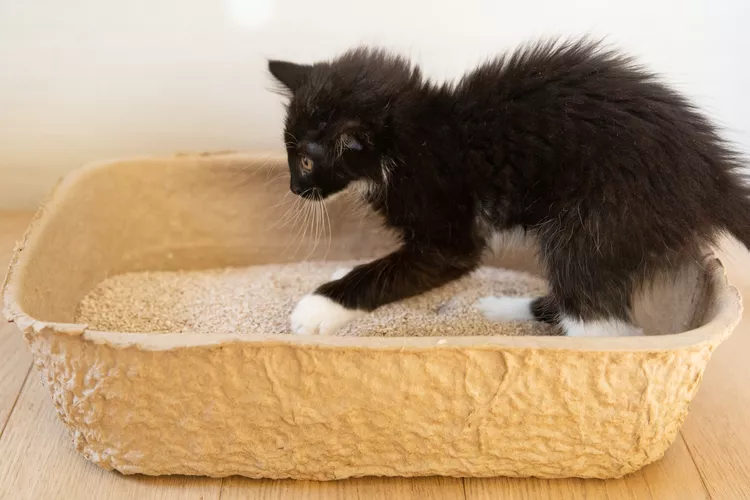
Training Your Kitten to Use the Litter Box
Bringing home a new kitten means they need to learn how to properly use a litter box. Discover how to successfully litter box train your kitten.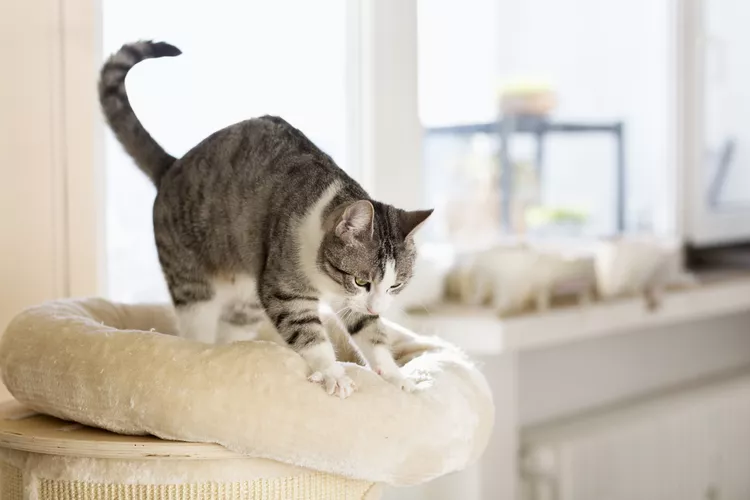
Why Do Cats Knead?
Kneading is a common behavior in cats of all ages. Learn why cats "make biscuits" and what it means for you, your cat, and all your blankets.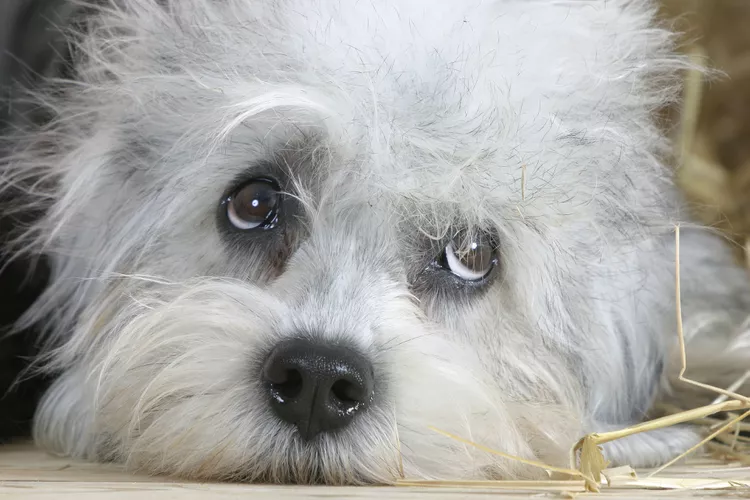
Dandie Dinmont Terrier: Dog Breed Characteristics & Care
Learn about the Dandie Dinmont Terrier, a silky dog breed with a signature puff of hair atop its head and a friendly, companionable personality.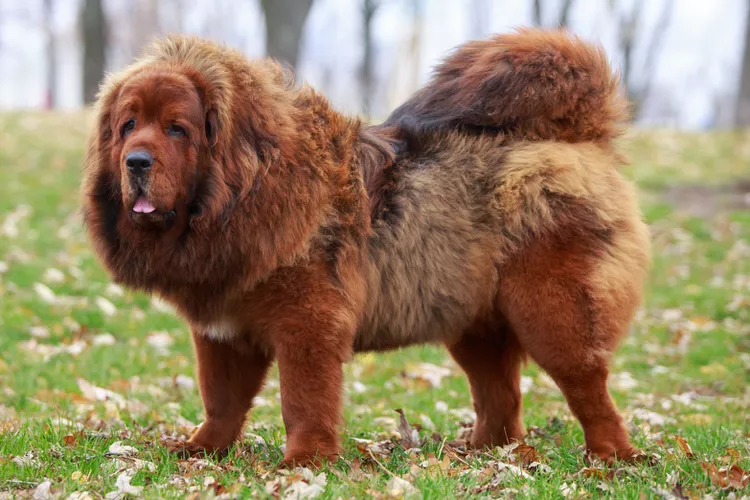
Tibetan Mastiff: Dog Breed Characteristics & Care
Learn about the Tibetan mastiff, an ancient guardian dog breed. This breed is known for their massive stature, flowing mane, and protective personality.
4 Reasons Why Your Dog Licks Their Butt
Butt-licking in dogs can be a part of normal grooming, but excessive butt-licking is not normal. Read about the most common reasons for this behavior.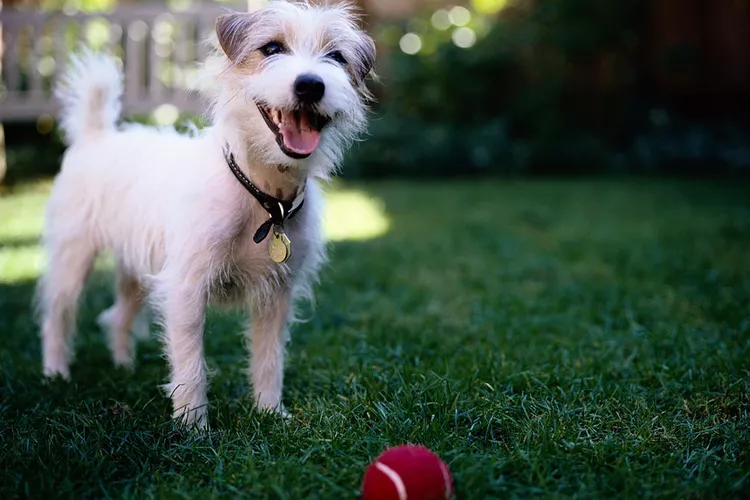
How to Teach Your Dog the "Leave It" Command
Training your dog the "leave it" command is a great way to instill self-control. Learn how to teach your dog to not pick things up from the ground.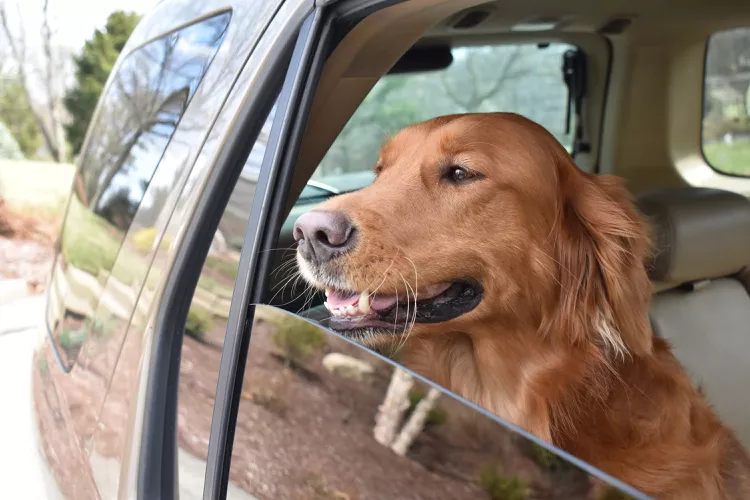
How to Solve Your Dog's Fear of Car Rides
Is your dog scared of car rides? This fear of riding in cars is common. Learn why your dog is scared of car rides and how to help conquer this fear.
Can Dogs Get Depression? How to Help Your Sad Dog
Can dogs get depression? Learn about the signs of depression in dogs and find out how to help your sad dog.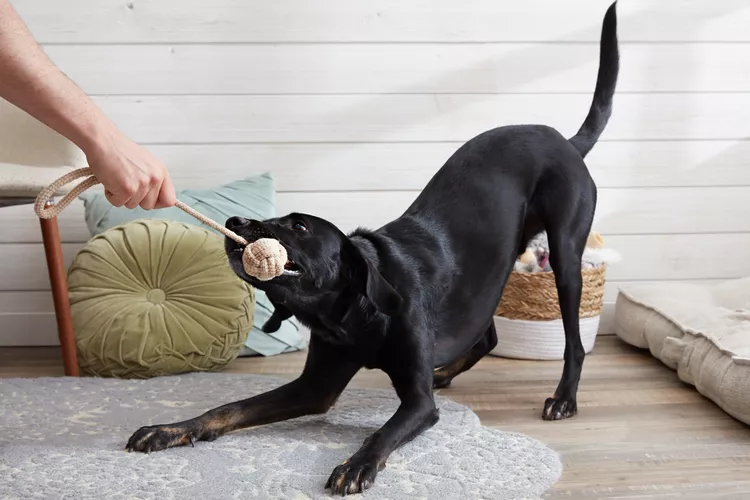
How to Play Tug of War With Your Dog
Many dogs love to play tug of war, and it's a healthy game that provides great exercise. Learn the best way to safely play tug of war with your dog.